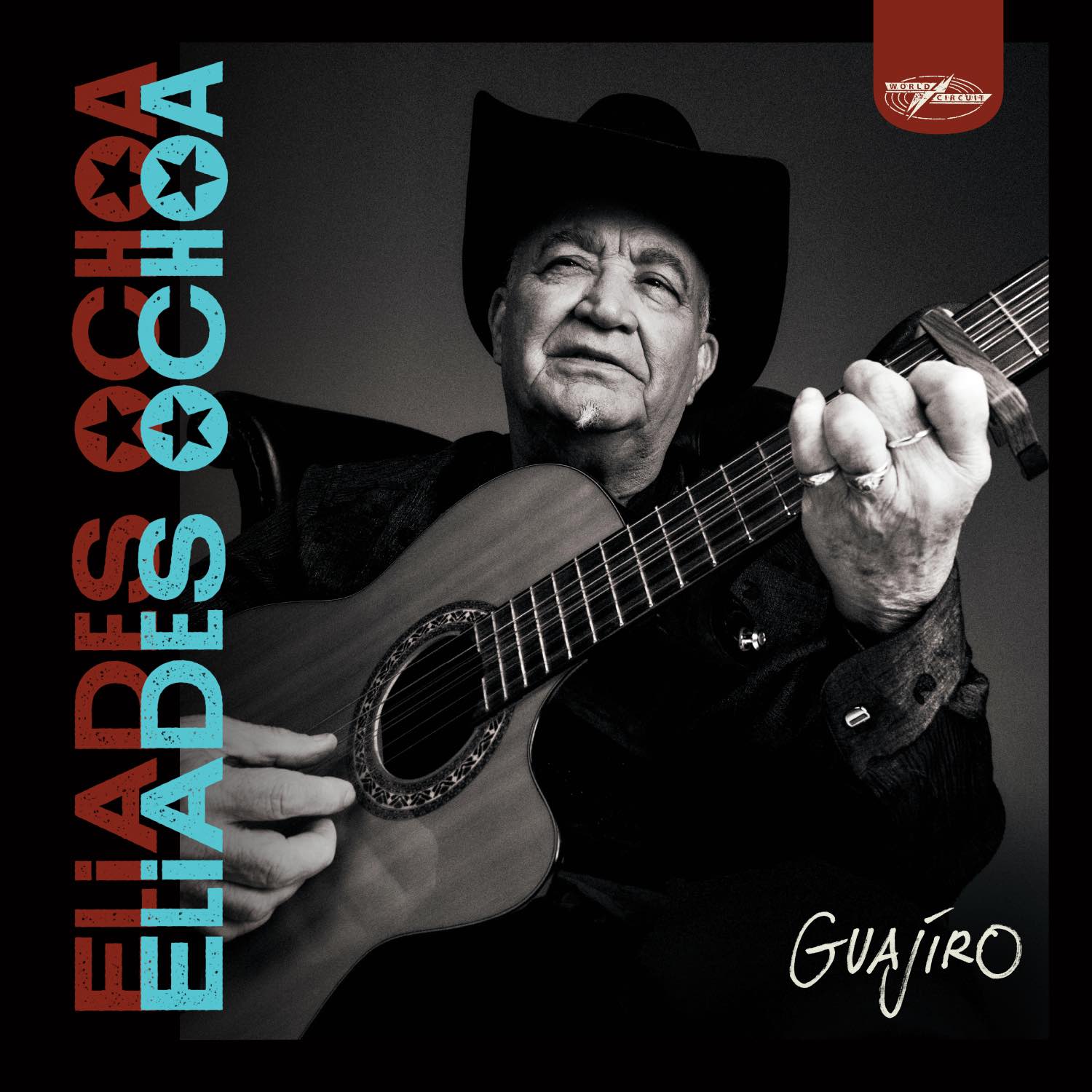Eliades Ochoa
Guajiro
WORLD CIRCUIT
As an original charter member of the legendary Buena Vista Social Club, anything that guitarist and singer Eliades Ochoa does carries the weight of tradition and history on its shoulders. In consideration of such gravitas, Ochoa’s new solo album Guajiro holds that heft with pride with the sons and guarachas of his youthful days to light his way, in addition to the more rough-shod stylings and country music influences he’s chosen as his path long before the Social Club opened its doors.
Always stretching the horizons of his arrangements and his signature bell-toned guitar work, Guajiro continues along that rugged countrified street, yet finds Ochoa at a happy crossroads with something of a silkier full-album sound (especially handsome on “Abrazo de Luz” and the classic Puerto Rican plena “Se Soltó Un León”) created by producer Demetrio Muñiz with the assistance of a handful of unexpected guests. When vocalist and activist Rubén Blades comes to call, audiences look for something crucial, something socially enveloping to be said. How refreshing it is, then, to find Blades returning to his young salsero roots for the jazzy poetics of “Pajarito Voló” in collaboration with guitarist Ochoa.
A sense of freedom from convention follows Ochoa through Guajiro as he welcomes experimental soul singer Joan as Police Woman to “Creo en la Naturaleza” for an additional vocal dose of vexation and vulnerability. And though Ochoa doesn’t need any help on the instrumental tip, genius lyrical harmonica player Charlie Musselwhite brings something sinewy and sensitive—and bluesy—to the sonorous feel of “West.”







